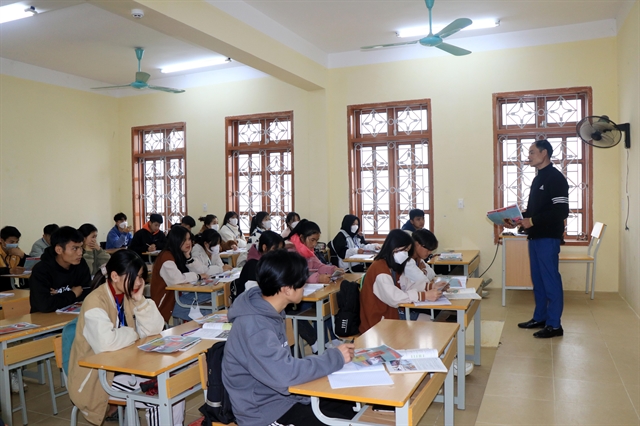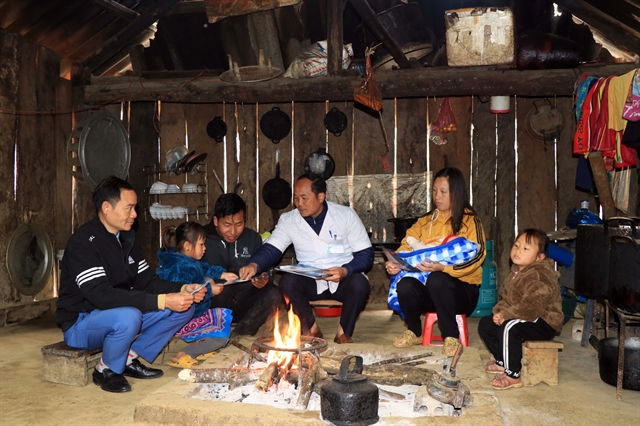 Society
Society


|
| Discussions with students and teachers on gender equality and the causes and consequences of sex imbalance at birth are held at a school in Sơn La Province. |
SƠN LA — Sơn La Province has struggled to address imbalances in the sex ratio at birth, despite implementing various solutions aimed at restoring a natural balance. The issue remains a persistent challenge for those in charge of population and family planning.
Vân Hồ, a remote and mountainous district, has one of the highest levels of imbalance. In 2022, the sex ratio at birth was 117 boys per 100 girls.
Due to misconceptions, many people living there still have a preference for a male child.
Giàng A Tánh, 30, from Co Lóng Village, Lóng Luông Commune, has three daughters, but he still wants a son to inherit the family home.
Tánh said he and his wife would have another baby when their youngest is 2-3 years old.
He explained that a H'Mông family must have a son because he is both a spiritual and economic pillar for the whole family.
Giàng Y Chi, 23, living in Lóng Luông Commune, has two daughters. But, like Tánh, she and her husband still hope to have a son.
The couple plans to give birth again in 2025.
Local health workers have made efforts to raise people's awareness to change social norms and practices that reinforce a preference for sons and value girls lower.
Tếnh A Kháng, a family planning official, said the local health station has sent official documents and plans to each village and organised workshops to raise people's awareness.
However, the results were not as expected, and the preference for sons is deep-rooted.

|
| A family planning official talks with residents in Vân Hồ District, Sơn La Province, about gender imbalance at birth. VNA/VNS Photos Hữu Quyết |
Local families prefer sons to inherit the home and take over ancestor worship.
Especially with the H'Mông ethnic minority's custom, only a son can worship his parents when they die, Kháng said.
Vân Hồ District's health centre has advised the district People's Committee to set a target and solutions every year to control the imbalance of sex ratio at birth.
The centre has also directed communal health stations to coordinate with local authorities to implement projects on gender imbalances in 2020-25.
Training, consulting skills and disseminating legal provisions on the prohibition of sex selection for population officers from district to grassroots levels have been strengthened.
More discussions with students and teachers on gender equality and the causes and consequences of sex imbalance at birth were also held.
In 2022, the district health sector raised awareness about sex imbalance at birth among more than 4,000 people and trained 70 health workers on population work.
However, some local authorities still do not pay enough attention to sex imbalance at birth.
According to the district health sector, the content and form of propaganda are not extensive and is unsuitable for each region.
Sồng A Vừ, deputy director of Vân Hồ District Health Centre, said they would continue to promote communication and coordinate with local youth and women's unions to build practical actions such as "Families without a third child" club, as well as contests on gender equality, to contribute to minimising gender imbalance. VNS




